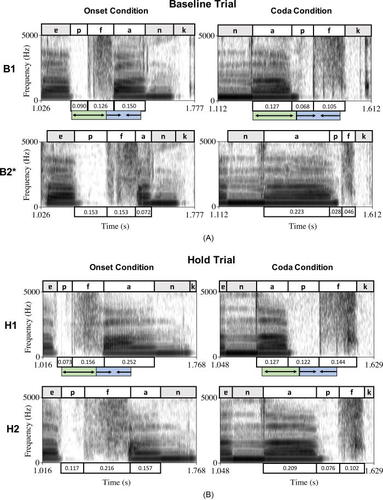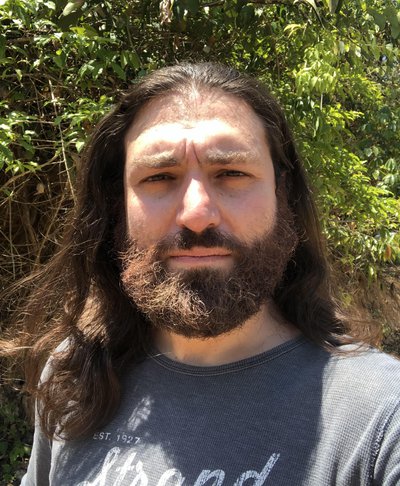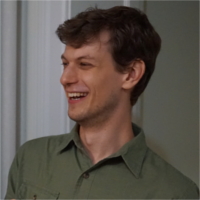About
The Cornell Phonetics Lab is a group of students and faculty who are curious about speech. We study patterns in speech — in both movement and sound. We do a variety research — experiments, fieldwork, and corpus studies. We test theories and build models of the mechanisms that create patterns. Learn more about our Research. See below for information on our events and our facilities.

Upcoming Events

21st April 2023 12:10 PM
Phonetics Lab Meeting
Fengyue will lead discussion of this paper:
- "Compensation to real-time temporal auditory feedback perturbation depends on syllable position", Miriam Oschkinata and Philip Hoole, Journal of the Acoustical Society of America, 15 September 2020

21st April 2023 12:30 PM
Dr. Adam Singerman to lecture on Quotation in Tupari Grammar and Discourse
The Linguistics Department Semantics Group proudly presents a talk by Dr. Adam Singerman of Syracuse University - his talk is titled Quotation in Tupari Grammar and Discourse.
Abstract:
In this talk I report on ongoing research into the structure and interpretation of quotative constructions in Tuparí [iso: tpr], a Tupían language spoken in the Brazilian state of Rondônia.
Drawing upon a sizable corpus of conversational and textual data, I argue that a single quotative construction covers a wide range of functions in everyday discourse, including not only speech reports in the narrow sense but also thought reports and descriptions of behavior/attitude.
Non-elicited examples of quotations nested within quotations provides clear evidence that the Tuparí quotative construction constitutes a true case of syntactic recursion, expanding the typology of known recursive structures in the Indigenous languages of the Americas.
More broadly, this talk demonstrates how an immersive fieldwork methodology — one that emphasizes careful participant observation and a focus on how speakers use their language in everyday discourse — can yield interesting findings for both syntactic typology and for descriptive-documentary purposes.
Location: 111 Morrill Hall, 159 Central Avenue, Ithaca, NY 14853-4701, USA
26th April 2023 12:10 PM
PhonDAWG - Phonetics Lab Data Analysis Working Group
Today's PhonDAWG is cancelled - we'll move the planned discussion topics to Friday's Phonetics Lab meeting.
Location: B11 Morrill Hall, 159 Central Avenue, Ithaca, NY 14853-4701, USA
27th April 2023 04:30 PM
Linguistics Colloquium Speaker: Dr. Adrian Stegovec of the University of Connecticut
The Department of Linguistics proudly presents Dr. Adrian Stegovec, Assistant Professor at the Department of Linguistics, University of Connecticut. Dr. Stegovec will give a talk titled "A Typological Gap in Person Restrictions and the Un-parameterization of Agree"
Abstract:
In many languages the co-occurrence of pronouns within a clause is allowed or disallowed based on their person value (e.g. the equivalent of “They showed you him” is grammatical while “They showed him you” may not be).
In this talk I present the findings of a large-scale crosslinguistic survey of such restrictions, spanning 106 languages from 26 families and 3 isolates, and discuss its implications for the analysis of person restrictions and syntactic theory more generally.
I establish a number of new typological generalizations, including what defines the class of pronouns that are crosslinguistically subject to person restrictions and, more importantly, a previously unnoticed typological gap that concerns interactions between:
- (i) the strength of the restriction (how many pronoun combinations are disallowed: e.g. only “*They showed him you/me” or also “*They showed me you/you me”) and
- (ii) the arguments involved in the restriction: subject and object pronouns or two object pronouns.
The gap is observed when person restrictions between subjects and objects and restrictions between objects both exist in a language, as in that case the former are never stronger than the latter. I will show that the existence of this gap is surprising from the perspective of recent analyses of person restrictions that model variation in restriction strength via the parameterization of the syntactic dependency (Agree) between the pronouns and funcional heads.
Based on the generalizations established by the survey, I will propose an alternative analysis where variation in restriction strength arises instead from differences in the structural position of the pronouns in relation to functional heads. An immediate consequence of this is that the typological gap follows directly from independently needed assumptions about argument structure.
The key new assumption regarding the source of person restriction phenomena is that they arise with a special class of pronouns that enter syntactic derivations unspecified for a person value, so that person restrictions arise because the sources of person values are scarce: I will argue that they are restricted to phase heads.
Bio:
Dr. Stegovec's research focuses primarily on syntax, semantics, morphology, and the interaction between them, in particular in relation to the problem of linguistic universals and crosslinguistic variation.
Location: 106 Morrill Hall, 159 Central Avenue, Morrill Hall, Ithaca, NY 14853-4701, USA
Facilities
The Cornell Phonetics Laboratory (CPL) provides an integrated environment for the experimental study of speech and language, including its production, perception, and acquisition.
Located in Morrill Hall, the laboratory consists of six adjacent rooms and covers about 1,600 square feet. Its facilities include a variety of hardware and software for analyzing and editing speech, for running experiments, for synthesizing speech, and for developing and testing phonetic, phonological, and psycholinguistic models.
Web-Based Phonetics and Phonology Experiments with LabVanced
The Phonetics Lab licenses the LabVanced software for designing and conducting web-based experiments.
Labvanced has particular value for phonetics and phonology experiments because of its:
- *Flexible audio/video recording capabilities and online eye-tracking.
- *Presentation of any kind of stimuli, including audio and video
- *Highly accurate response time measurement
- *Researchers can interactively build experiments with LabVanced's graphical task builder, without having to write any code.
Students and Faculty are currently using LabVanced to design web experiments involving eye-tracking, audio recording, and perception studies.
Subjects are recruited via several online systems:
- * Prolific and Amazon Mechanical Turk - subjects for web-based experiments.
- * Sona Systems - Cornell subjects for for LabVanced experiments conducted in the Phonetics Lab's Sound Booth

Computing Resources
The Phonetics Lab maintains two Linux servers that are located in the Rhodes Hall server farm:
- Lingual - This Ubuntu Linux web server hosts the Phonetics Lab Drupal websites, along with a number of event and faculty/grad student HTML/CSS websites.
- Uvular - This Ubuntu Linux dual-processor, 24-core, two GPU server is the computational workhorse for the Phonetics lab, and is primarily used for deep-learning projects.
In addition to the Phonetics Lab servers, students can request access to additional computing resources of the Computational Linguistics lab:
- *Badjak - a Linux GPU-based compute server with eight NVIDIA GeForce RTX 2080Ti GPUs
- *Compute server #2 - a Linux GPU-based compute server with eight NVIDIA A5000 GPUs
- *Oelek - a Linux NFS storage server that supports Badjak.
These servers, in turn, are nodes in the G2 Computing Cluster, which currently consists of 195 servers (82 CPU-only servers and 113 GPU servers) consisting of ~7400 CPU cores and 698 GPUs.
The G2 Cluster uses the SLURM Workload Manager for submitting batch jobs that can run on any available server or GPU on any cluster node.
Articulate Instruments - Micro Speech Research Ultrasound System
We use this Articulate Instruments Micro Speech Research Ultrasound System to investigate how fine-grained variation in speech articulation connects to phonological structure.
The ultrasound system is portable and non-invasive, making it ideal for collecting articulatory data in the field.

BIOPAC MP-160 System
The Sound Booth Laboratory has a BIOPAC MP-160 system for physiological data collection. This system supports two BIOPAC Respiratory Effort Transducers and their associated interface modules.

Language Corpora
- The Cornell Linguistics Department has more than 915 language corpora from the Linguistic Data Consortium (LDC), consisting of high-quality text, audio, and video corpora in more than 60 languages. In addition, we receive three to four new language corpora per month under an LDC license maintained by the Cornell Library.
- This Linguistic Department web page lists all our holdings, as well as our licensed non-LDC corpora.
- These and other corpora are available to Cornell students, staff, faculty, post-docs, and visiting scholars for research in the broad area of "natural language processing", which of course includes all ongoing Phonetics Lab research activities.
- This Confluence wiki page - only available to Cornell faculty & students - outlines the corpora access procedures for faculty supervised research.

Speech Aerodynamics
Studies of the aerodynamics of speech production are conducted with our Glottal Enterprises oral and nasal airflow and pressure transducers.

Electroglottography
We use a Glottal Enterprises EG-2 electroglottograph for noninvasive measurement of vocal fold vibration.

Real-time vocal tract MRI
Our lab is part of the Cornell Speech Imaging Group (SIG), a cross-disciplinary team of researchers using real-time magnetic resonance imaging to study the dynamics of speech articulation.

Articulatory movement tracking
We use the Northern Digital Inc. Wave motion-capture system to study speech articulatory patterns and motor control.
Sound Booth
Our isolated sound recording booth serves a range of purposes--from basic recording to perceptual, psycholinguistic, and ultrasonic experimentation.
We also have the necessary software and audio interfaces to perform low latency real-time auditory feedback experiments via MATLAB and Audapter.

